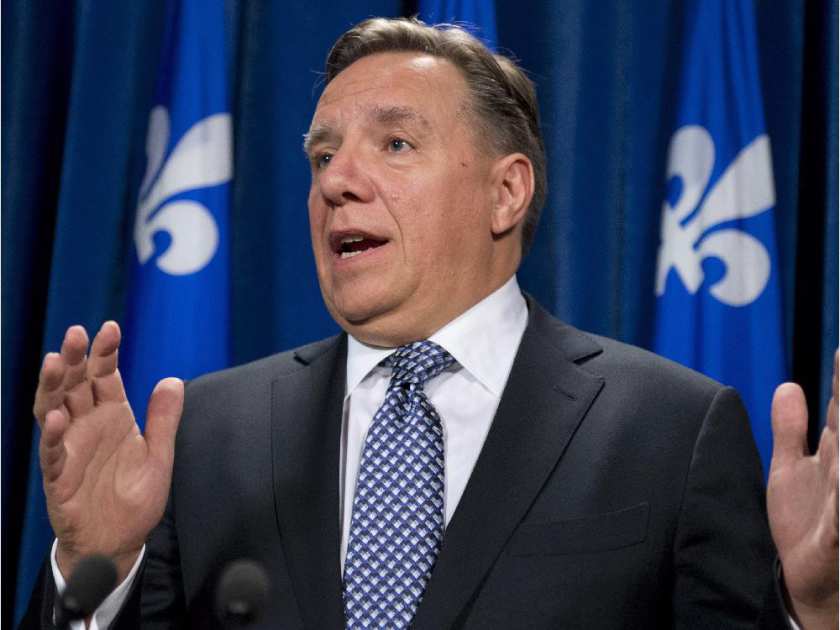New Brunswick is the only officially bilingual province in Canada. (I’m often amazed by the number of Canadians who don’t know this, or assume it’s Quebec.) Support for the Official Languages Act is quite high among New Brunswick residents, too.
Shirley MacLean, the provincial commissioner of official languages, noted in an Oct. 2021 survey of 800 adults released last April that 81 percent of New Brunswickers favoured having French and English as official languages. Francophone approval was at 95 percent, while anglophones were at 73 percent.
MacLean’s study also revealed that over 90 percent of respondents felt it was important to have second-language training in the schools – and adults should receive it for free. Hence, the relevance of the French immersion program taught in provincial schools takes on a whole new meaning.
That’s the theory, anyway.
In practice, New Brunswick’s French immersion program has been problematic in certain ways. While there has been heavy emphasis placed on teaching French in the schools since the Official Languages Act was passed in 1969, the amount of French spoken throughout the province doesn’t appear to reflect this. New Brunswick education minister Bill Hogan pointed out in a press conference last month that less than half of high school graduates who identify as anglophones speak French at a “conversational level.”
Considering the amount of support for official bilingualism in New Brunswick, that’s a rather surprising statistic.
Hence, the New Brunswick government led by Progressive Conservative Premier Blaine Higgs announced some significant changes last year to its long-standing French immersion program. Starting this September, students in kindergarten and Grade 1 will spend half of each school day in “exploratory learning” in French. The other half will be subjects taught in English, including reading, writing and math. Courses such as science and social studies could still be learned in French, however.
“Through the model,” Hogan said, “students will be able to immerse themselves in French from a young age, interacting with their peers, and exploring their surroundings and environment in French.” The goal is to make this group, and those that follow, more conversational in French and still maintain the 50-50 model in primary school. “While the road map is still likely to change,” he said, “we believe they should be able to continue 50-50 English-French learning through to Grade 5 with the end goal to be able to continue to explore opportunities for more advanced French learning in high school years, based on their goals and interests and what they want to accomplish.”
Sounds pretty logical, when you think about it.
Unsurprisingly, the government’s plan has its critics. Léo-James Lévesque, an education professor at St. Thomas University and former French education supervisor, told CBC in a Dec. 24, 2022 interview it would be “a mistake” that reduced choice and worsened education outcomes. “You’re creating situations where you are going to be learning some aspects of the language, but you will not be learning the language per se.”
Lévesque suggested that previous models similar to the PC government’s plan had a “negative impact on the learning of the students. Teachers will have 50 per cent less of the time to teach the curriculum…even if they try, they will not have sufficient time.” He also believes the new plan “takes away the choice of anyone to become bilingual in the Anglophone school system.”
Is this an accurate assessment?
While I’m strongly opposed to official bilingualism as a mandated government policy, I’m fully supportive of parents having the freedom to choose French immersion schools for their children. In my view, the government’s plan to reform the provincial French immersion program won’t lead to the radical changes its opponents are suggesting.
The PCs are calling for a more balanced approach in teaching French and English in New Brunswick schools. Students will therefore learn both official languages in an equitable fashion, and become more comfortable in using them in different social settings. By placing a greater emphasis on conversational French, it will enable anglophone students to use their second language more confidently when speaking with family, friends, neighbours and others.
It won’t limit parental or societal choice when it comes to bilingualism, either.
Anglophone parents can still support and encourage their children to learn both official languages at home and school. Reforms to the education curriculum with respect to French immersion won’t change the provincial stance when it comes to supporting the Official Languages Act. And if francophones and anglophones really believe in education choice, they would reject official bilingualism and let parents make their own choices with respect to educating their children in either English, French or both languages.
Hogan’s strategy isn’t anti-French by any stretch of the imagination. It certainly isn’t equivalent to a “wrecking ball,” as former education minister Dominic Cardy wrote in his Oct. 13, 2022 resignation letter to Higgs. Rather, it will open the door to more anglophone students having the confidence to use French in a conversational manner.
The New Brunswick government’s plan to reform French immersion seeks to rectify a historical weakness in Canada’s only bilingual province. Francophone and anglophone rights will still be protected, and things will hopefully improve for students now and in the future.
Michael Taube, a long-time newspaper columnist and political commentator, was a speechwriter for former Canadian prime minister Stephen Harper.








